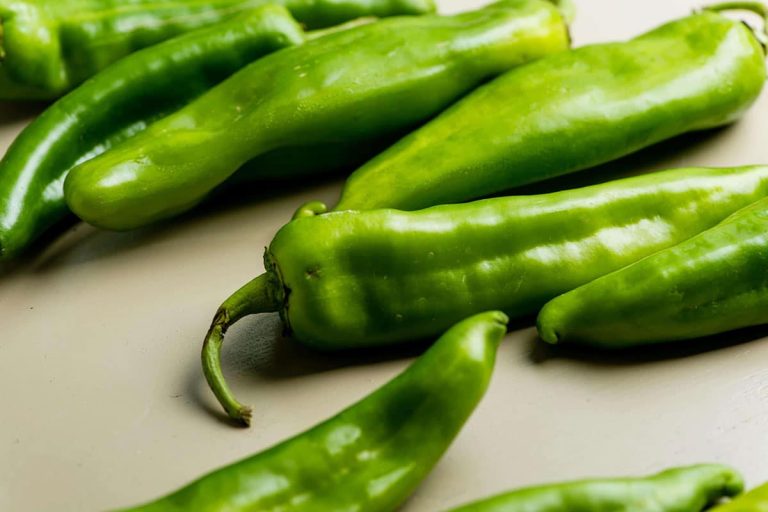What Are Halal Cosmetics? Understanding the Growing Demand for Sharia-Compliant Beauty Products
The global beauty industry has witnessed a remarkable transformation in recent years, with halal cosmetics emerging as one of the fastest-growing segments. As Muslim consumers become increasingly conscious about the ingredients in their beauty products, the demand for halal-certified cosmetics has skyrocketed, creating unprecedented opportunities for beauty brands worldwide. At Halal Watch, we’ve observed this trend firsthand through our comprehensive halal certification services, helping numerous cosmetic companies navigate the complexities of Islamic compliance.
Defining Halal Cosmetics: Beyond Surface Beauty
Halal cosmetics represent more than just beauty products – they embody a philosophy of purity, ethics, and spiritual consciousness. The term “halal,” derived from Arabic, means “permissible” or “lawful” according to Islamic law (Sharia). When applied to cosmetics, halal certification ensures that every ingredient, manufacturing process, and handling procedure adheres to Islamic principles.
Unlike conventional cosmetics, halal beauty products undergo rigorous scrutiny to guarantee they contain no forbidden (haram) substances. This includes the complete absence of alcohol derived from fermentation, pork-derived ingredients, blood, carnivorous animal by-products, and any components obtained from animals not slaughtered according to Islamic guidelines. The certification process extends beyond ingredients to encompass manufacturing equipment, storage facilities, and even transportation methods.
The Islamic Foundation of Halal Cosmetics
The religious foundation for halal cosmetics stems from the Quranic principle that Muslims should consume and use only pure (tayyib) and permissible substances. While this concept traditionally applied to food, contemporary Islamic scholars have extended these guidelines to include topical products like cosmetics, recognizing that certain ingredients can be absorbed through the skin or accidentally ingested.
Islamic jurisprudence emphasizes the importance of avoiding najis (impure) substances, which include alcohol from fermentation, pork derivatives, and ingredients from improperly slaughtered animals. This religious framework provides the foundation for halal cosmetic standards, ensuring that Muslim consumers can maintain their spiritual practices while enjoying modern beauty products.
Key Ingredients: What Makes Cosmetics Halal or Haram
Understanding the distinction between halal and haram ingredients is crucial for both manufacturers and consumers. Prohibited ingredients commonly found in conventional cosmetics include:
Alcohol-based components derived from fermentation processes, though synthetic alcohols like cetyl alcohol and stearyl alcohol are generally permitted as they serve functional rather than intoxicating purposes. Animal-derived ingredients pose particular challenges, as they must come from halal-slaughtered animals or permissible sources. This includes common cosmetic ingredients like glycerin, collagen, keratin, and certain emulsifiers.
Pork-derived substances are strictly forbidden, including porcine-based glycerin, collagen, and bristles used in makeup brushes. Carmine, a red pigment derived from insects, remains a subject of scholarly debate, with many certification bodies advising against its use.
Conversely, halal cosmetics embrace plant-based ingredients, synthetic alternatives, and marine-derived components. Popular halal ingredients include argan oil, rose water, honey, various botanical extracts, and minerals. These natural ingredients not only comply with Islamic requirements but often provide superior skincare benefits.
The Comprehensive Halal Certification Process
At Halal Watch, our certification process for cosmetics involves multiple stages of verification to ensure complete compliance with Islamic standards. The journey begins with a detailed ingredient analysis, where our Islamic scholars and technical experts examine every component in the formulation, including active ingredients, preservatives, fragrances, and colorants.
Manufacturing facility audits form a critical component of our certification process. We inspect production lines, storage areas, and quality control procedures to prevent cross-contamination with non-halal substances. This includes verifying that shared equipment is properly cleaned between halal and non-halal product runs, and that separate storage systems are maintained where necessary.
Documentation requirements are extensive, including supplier certificates, ingredient specifications, manufacturing processes, and quality control procedures. We also require ongoing monitoring and periodic re-certification to maintain halal status, ensuring that certified products consistently meet Islamic standards throughout their market lifecycle.
The certification process typically takes 4-8 weeks, depending on the complexity of the product portfolio and the completeness of submitted documentation. Upon successful completion, companies receive official halal certification and are authorized to display our recognized halal symbol on their products.
Market Dynamics and Consumer Demographics
The global halal cosmetics market has experienced exponential growth, with industry reports projecting continued expansion through 2030. This growth is driven not only by the world’s 1.8 billion Muslim population but also by non-Muslim consumers who associate halal products with purity, quality, and ethical manufacturing practices.
Key demographics driving this market include young Muslim women in urban areas, health-conscious consumers seeking natural alternatives, and ethical shoppers prioritizing cruelty-free and sustainably sourced products. Countries with significant Muslim populations, including Indonesia, Malaysia, Turkey, and the UAE, represent primary markets, while Western nations with growing Muslim communities present emerging opportunities.
The premium positioning of halal cosmetics has proven successful, with consumers willing to pay higher prices for certified products that align with their values and religious beliefs. This premium pricing, combined with growing market demand, creates compelling business opportunities for cosmetic manufacturers.
Benefits for Manufacturers and Consumers
For cosmetic companies, halal certification offers multiple strategic advantages. Market access expands significantly, particularly in Muslim-majority countries where halal certification is often mandatory for cosmetic imports. Brand differentiation becomes possible in crowded markets, while premium pricing opportunities enhance profit margins.
Consumer benefits extend beyond religious compliance to include product safety and quality assurance. Halal certification processes often identify and eliminate potentially harmful ingredients, resulting in gentler formulations suitable for sensitive skin. The emphasis on natural and plant-based ingredients appeals to health-conscious consumers regardless of religious affiliation.
Many halal cosmetic brands also embrace ethical manufacturing practices, including cruelty-free testing and sustainable sourcing, which resonates with socially conscious consumers. This alignment of religious requirements with contemporary ethical values has contributed significantly to the mainstream acceptance of halal cosmetics.
Navigating Challenges and Future Opportunities
Despite rapid growth, the halal cosmetics industry faces several challenges. Standardization remains an issue, with different certification bodies applying varying standards and requirements. Supply chain complexity increases when sourcing halal-certified raw materials, particularly for specialized ingredients.
Consumer education continues to be essential, as many potential customers remain unaware of halal cosmetics or harbor misconceptions about their quality and performance. Marketing strategies must effectively communicate the benefits of halal certification while appealing to diverse consumer segments.
Looking ahead, the integration of technology presents exciting opportunities. Blockchain systems could provide transparent ingredient traceability, while artificial intelligence might streamline the certification process. Innovations in biotechnology and synthetic biology offer new possibilities for developing halal-compliant ingredients that meet both religious requirements and performance expectations.
Conclusion: Partnering with Halal Watch for Success
The halal cosmetics revolution represents more than a market trend – it reflects a fundamental shift toward conscious consumption and ethical business practices. As this sector continues to evolve, proper certification becomes increasingly crucial for success in global markets.
Halal Watch stands ready to guide cosmetic companies through every aspect of halal certification, from initial consultation to ongoing compliance monitoring. Our expertise in Islamic jurisprudence, combined with deep understanding of cosmetic manufacturing, ensures that your products meet the highest halal standards while maintaining commercial viability.
For businesses seeking to enter or expand within the halal cosmetics market, partnering with a trusted certification agency like Halal Watch provides the credibility, expertise, and market access necessary for sustainable success. Contact us today to begin your halal certification journey and unlock the tremendous potential of this dynamic market segment.






